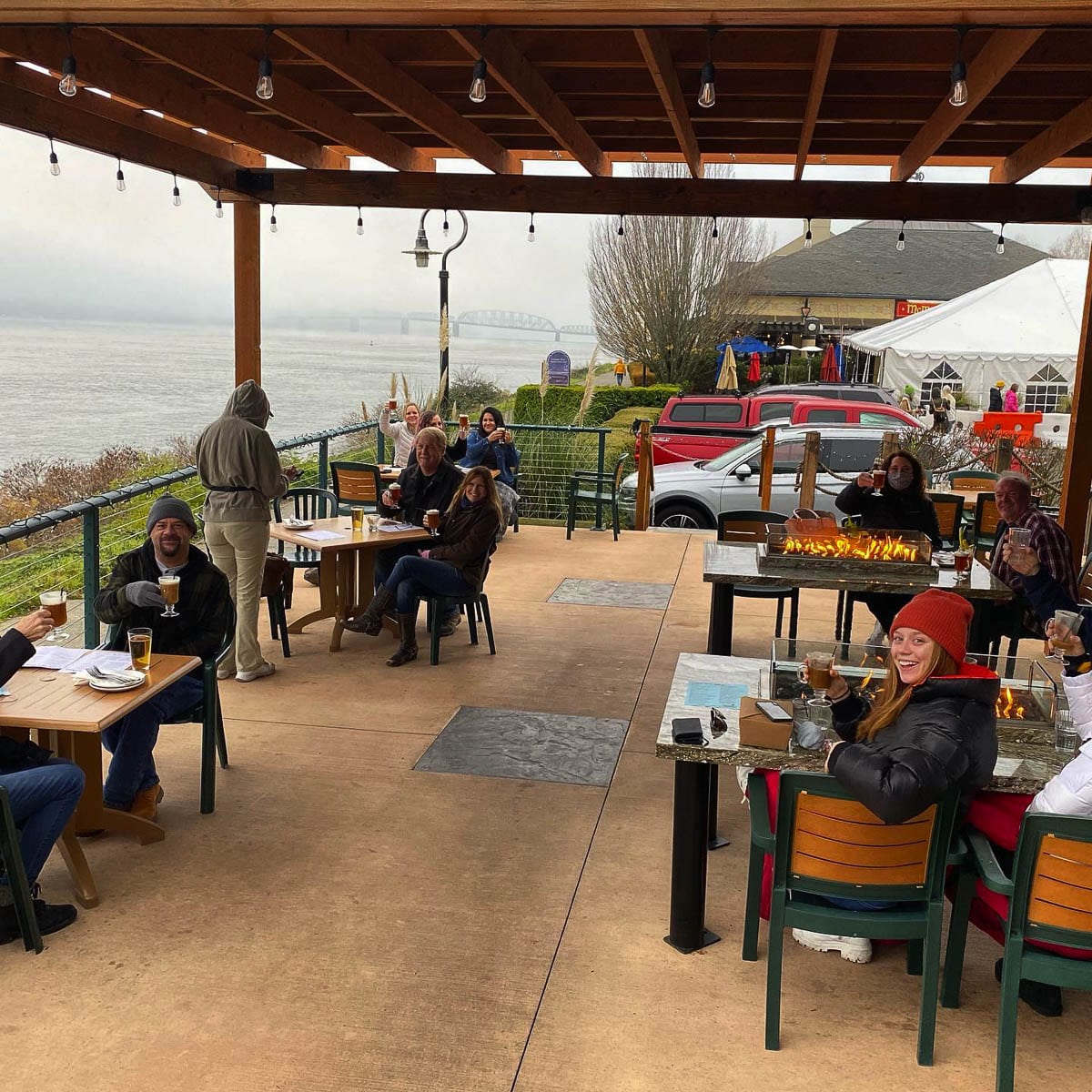Mark Matthias says the state should also reopen, gyms, theatres, and bowling alleys
VANCOUVER — A year ago, Mark Matthias employed 200 people at Beaches Restaurant on the Vancouver waterfront. Today he sees only about 20 employees in an average week.
Matthias says he takes the struggles and losses of these employees personally.
The restaurant business has been extremely hard hit by the restrictions in Gov. Jay Inslee’s rules locking down the state in March, and then again in November, limiting service to outdoor dining or to-go orders only.
While some have adapted, creating outdoor dining spaces and ramping up delivery service and pickup, many others have shut down, either temporarily or, in many cases, permanently.
Throughout it all, Matthias has tried to remain upbeat, emphasizing a “can do” attitude. He has remained loyal to his employees and customers. This past Thanksgiving and Christmas, he continued a nearly 40-year tradition of serving free meals to those in need.

Yet the latest lockdown rules by Governor Inslee are too harsh for bar and restaurant owners, says Matthias and many others. They say the state’s own data shows no evidence that their dining establishments have contributed to the spike in COVID-19 cases in Washington state.
Matthias has written eight letters to the governor and to state legislators over the past two months, advocating for the industry. Most recently he advocated for a bi-partisan bill introduced by Senators John Braun (R-20th District) and Mark Mullet (D-5th District). It would allow closed businesses (restaurants, gyms, theatres, and bowling alleys) to immediately re-open, safely, and still comply with the Phase II restrictions.
“I can’t implore you strongly enough to support this bill,” Matthias wrote.
He acknowledged everyone’s efforts during the summer and early fall to keep COVID numbers low, “But once we changed strategies in November and closed restaurants, gyms, theatres, and bowling alleys, we kind of lost control,” he said. “The numbers went to record highs and they stayed there all through December and into January. I think you really need to analyze why that happened.”
These businesses are told they represent a “high risk of transmissions in our establishments”. Matthias believes that is contradicted by the state’s own data from last year and specifically the fall.
After restaurants were allowed to reopen to indoor dining at 50 percent capacity, state data shows only one percent of known COVID-19 infection sources could be linked to restaurants. The numbers were the same or less for gyms, theaters and bowling alleys.
He points out that, with these businesses closed, they could not have been contributors to the December and early January spike in COVID cases.
“Isn’t it time to consider allowing us to open and be a part of the solution rather than keeping us closed and allowing the numbers to climb and our businesses to struggle or fail,” asked Matthias.
“We are closed through no fault of our own,” he wrote. “These business owners are asking for a review of the rules and metrics that apply only to restaurants, gyms, theatres, and bowling alleys.”
Matthias says he would like the legislature to “establish a path forward where we can build ourselves back to successful businesses. There is no politics, just thousands of people who want a fair shake.”
In an earlier letter to the governor and legislators, Matthias asked:
- How can restaurants, gyms, bowling alleys and theatres be blamed for increasing the spread of the virus for the past month when they have been closed?
- Could this be as simple as counts going higher because it was expected due to the cold weather and people being forced indoors in all areas of their lives due to the restrictions?
- Is it possible that other industries who were mandated to 25 percent capacity, but remained open as normal, may have contributed?
- Do you think our state government should have the power to close any business, through no fault of their own, and not compensate them fairly before they inflict economic damage?
After the governor shut down these businesses in November, the virus numbers spiked for 7 weeks. They remain higher today than they were when these establishments were open, Matthias points out.
Virus counts for the two weeks leading up the November closure were 22,785, or an average of 1,519 per day. Virus counts for the first two weeks in December (after the closure) were 40,167, or 2,869 per day average. As of Jan 12 data, the state had 38,896 cases for the previous two weeks, or 2,778 per day average.

In addition to the loss of income and employment, Matthias says his unemployment costs are 11.5 times higher than 2019, with no reasonable compensation from the state as of yet. He’s also bearing additional costs from an increased minimum wage and higher unemployment insurance rates.
On social media, Matthias added the following: “As a state, I hope we stop following that same path of ‘spinning’ the same narrative around restaurants as being the problem. Unfortunately, for those of us who are damaged by these decisions, we have not heard any science that backs this up. We proved the high-risk narrative wrong over the last 7 months due to our safety measures, and yet we still pay the price by being shut down or at limited capacities that are financially impossible.”
Byeloth Hermanson is a fan and patron of Beaches.
“I think it’s ironic that I can take my wife out to a restaurant and sit down and have a nice meal at ilani casino in La center,” he said, “but the rest of Clark county remains closed.”
Hermanson said he was at the casino last weekend and saw 40 people waiting to get a drink. He said there were over 75 people in line to get inside when they left.
Linda Dyer Lindauer owns Linda’s Homeplate Restaurant on NE 60th Way in Vancouver. While her establishment is small, with just 13 tables, it has been open for 17 years.
“If you can have live entertainment and gyms opening, I don’t understand why we can’t also,” said Lindauer, adding that she isn’t sure her business can survive much longer under current restrictions.
Now that the state legislature is in session, these businesses hope elected representatives can offer some relief.
Matthias closed one of his letters with the following.
“I still believe in working towards solutions with facts, and being fair to citizens. I believe in my business, my team, my community, and making a positive difference. When challenges hit us, we step up to help. Point being, we can let the virus control us, or we can control the outcome together.”
Beaches remains open for limited outdoor dining and takeout service.




